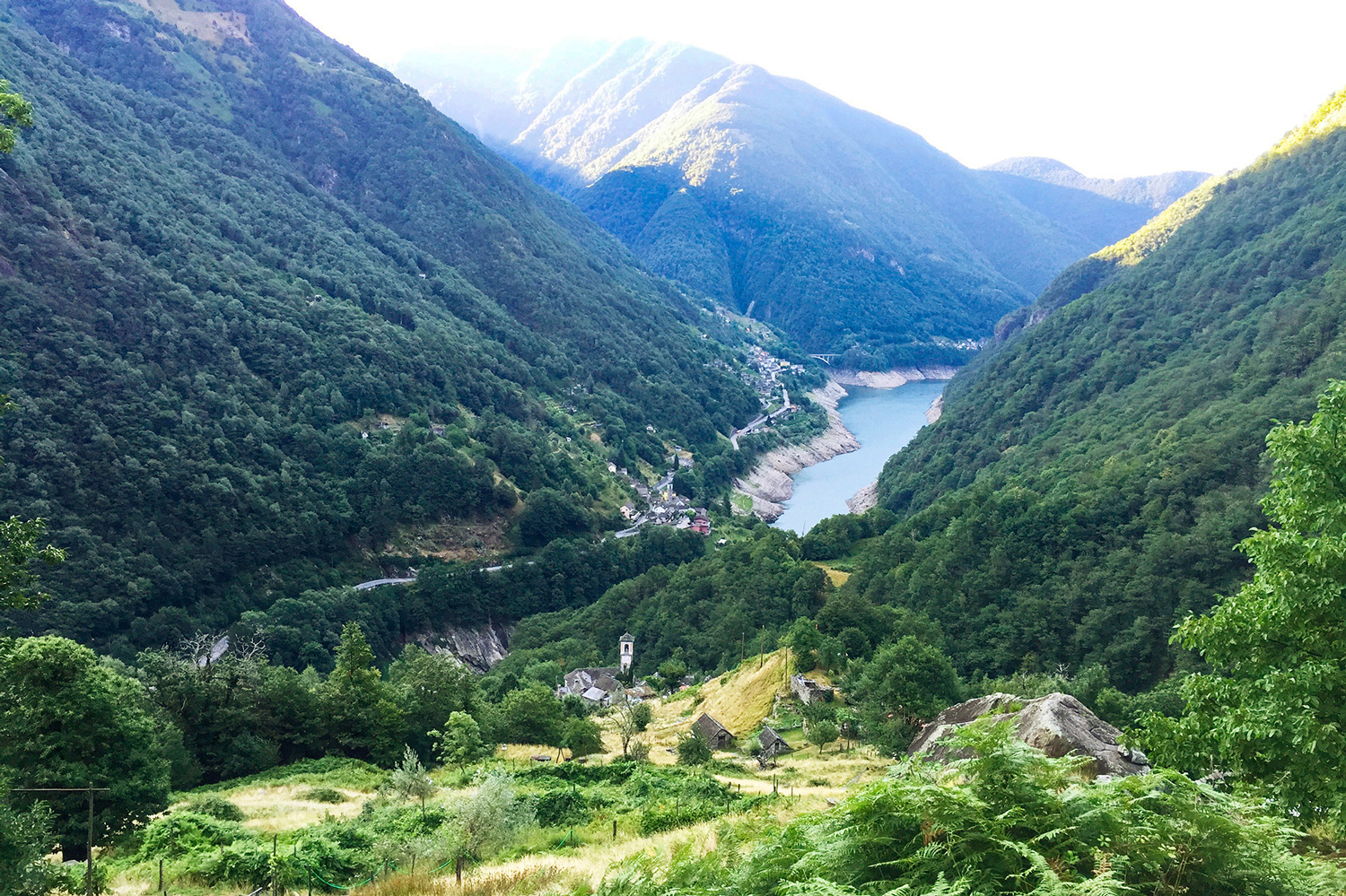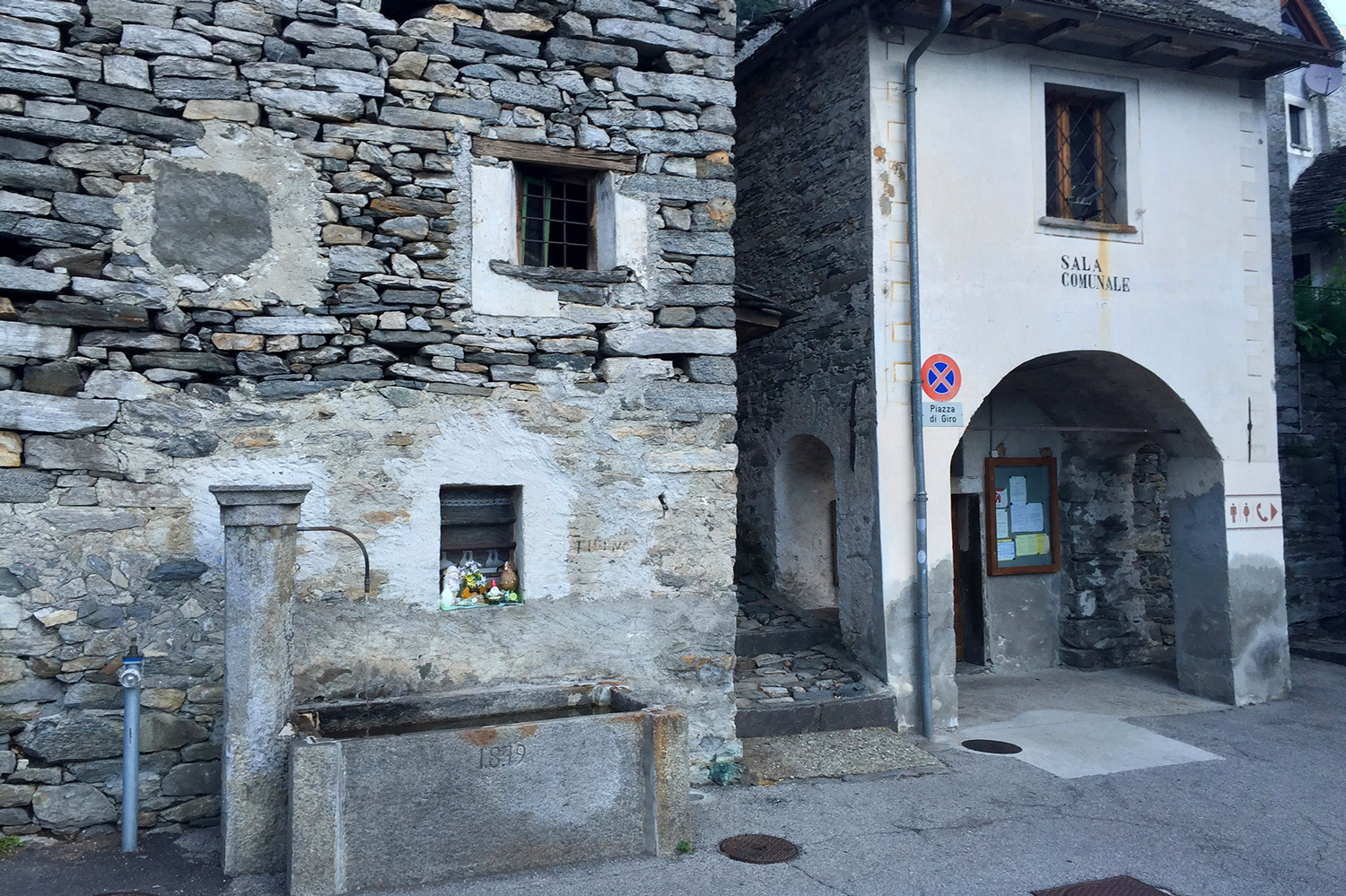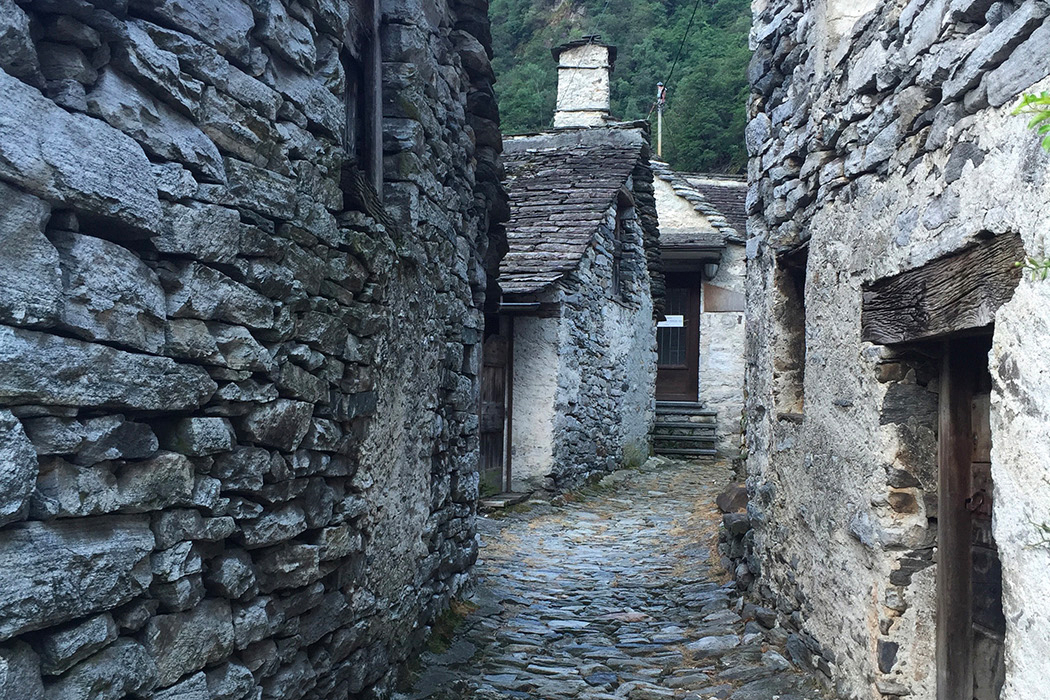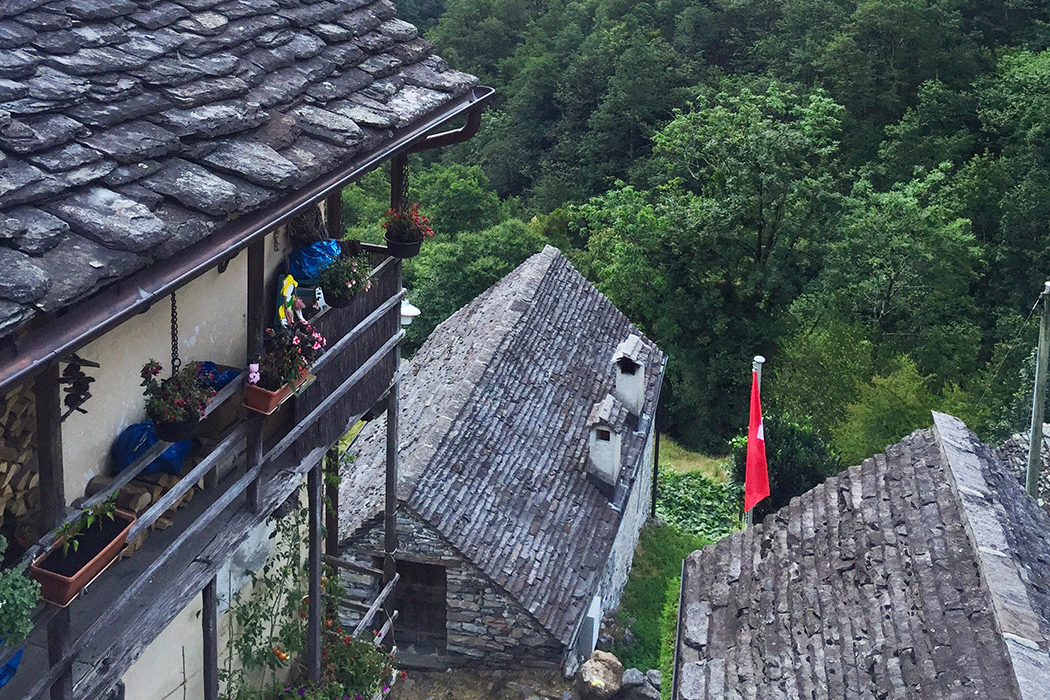With some of the world’s most dramatic peaks, quaint villages clinging to lakefront mountain cliffs, and pristine green space as far as the eye can see, Switzerland’s countryside is impossibly beautiful. Still, some Swiss residents can’t resist the call of the city. That draw has threatened many of its rural towns and villages with economic ruin. Now, the town of Corippo — the country’s smallest municipality — is poised to do something about it.

Tucked into the Verzasca Valley, the pint-sized village of Corippo feels plucked from a fairytale. It’s a cluster of several dozen centuries-old granite buildings perched on a lush green slope. It’s a town frozen in time, one that provides an authentic glimpse at 19th-century Swiss life. However, in spite of its natural beauty and the fact that it’s just 30 minutes from the thriving resort city of Locarno, it’s in real danger of becoming a ghost town. The economics of living in such a remote mountain hamlet are harsh. Many of the town’s youngest residents left long ago for better job opportunities and a cushier way of life in the big city. Fast-forward through 200 years of steady decline, and what remains is just 12 permanent residents, 11 of whom are over 65 years old. Only one of them still works.
Still, this “diligent dozen” is facing the challenge of their town’s imminent collapse head-on. A grassroots foundation called Fondazione Corippo 1975 has taken up the town’s cause and vowed to bring it back from the brink. They’re proposing a novel concept called albergo diffuso. It will turn Corippo into Albergo Corippo, Switzerland’s first “scattered hotel.” It’s a clever though not unprecedented idea inspired by similar small towns in Italy. At first, 30 of the village’s original 70 buildings will be converted into hotel rooms and rental cottages. Together, the entire village will function as a single, alpine hotel.
Plans are to convert the town through a three-stage process. First, the osteria (Corippo’s only restaurant and the basis for much of its economy) will be refurbished to serve as the hotel’s reception and dining space. The areas around the church and town hall will serve as communal, open-air gathering space for guests. The streets will become the de facto hotel corridors, and the town mill and bakery will also undergo a full renovation. Lastly, the entire village will be landscaped to plant hemp, chestnut, and rye trees. The goal is to retain as much of the original history, culture, and flavor as possible to provide hotel guests with a one-of-a-kind vacation to an authentic Swiss village that has changed little since the 1800s.
The project has struggled for years, although it appears there may be light at the end of the tunnel. In August 2018, The New York Times reported that coordinators had raised nearly $3 million through bank loans and public funding.
It’s still early days for the Corippo project, so it’s difficult to say whether that will be enough to save the town from extinction. The village is hoping to officially open for business as a hotel Easter 2020. For now, travelers can rent the single Casa Arcotti cottage for around $135 per night.






